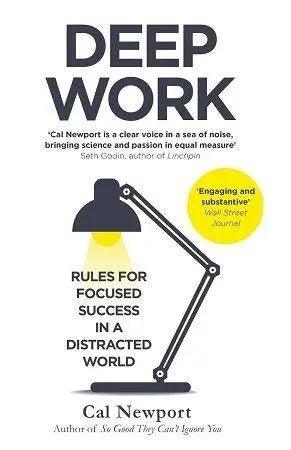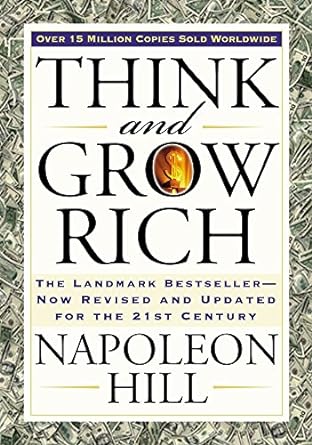Deep Work
**Book Summary of *Deep Work* by Cal Newport**
*Deep Work* by Cal Newport is a guide to achieving meaningful productivity in a world full of distractions. Newport argues that the ability to focus on demanding tasks without distraction—what he calls "deep work"—is becoming increasingly valuable. He breaks down why deep work matters, how it differs from shallow work, and offers practical strategies to help anyone cultivate deep work in their life.
---
### 1. **Introduction**
Newport introduces the concept of "deep work," defining it as professional tasks performed in a state of focused, undistracted concentration, which push cognitive capabilities to their limit. He contrasts this with "shallow work," or tasks that are often non-cognitively demanding, usually done while distracted. Deep work is highly productive, helps people master complex skills quickly, and is rare yet increasingly essential for success in today's competitive world.
**Example**: Newport gives the example of a skilled blacksmith or craftsman, whose work requires concentration and immersion, yielding both high quality and personal satisfaction.
---
### 2. **Deep Work is Valuable**
In this chapter, Newport explains that deep work creates a tangible competitive advantage, particularly in knowledge-based industries. He describes how people who can work deeply are able to produce more in less time and with greater quality. Newport argues that, as the economy evolves, deep work skills are becoming indispensable to stand out in a world that values innovation and problem-solving.
**Example**: Newport points to Carl Jung, the renowned psychologist, who secluded himself in a remote tower to think deeply and produce groundbreaking work. Newport explains that Jung's focus on deep work allowed him to generate insights that shaped the field of psychology.
---
### 3. **Deep Work is Rare**
Newport examines how modern workplaces, with their open office spaces, constant digital notifications, and emphasis on accessibility, prioritize shallow work over deep work. He explains that many jobs now favor responsiveness and visibility over focused, high-quality output. The prevalence of digital distractions has made deep work uncommon, which is why it has become such a valuable skill.
**Example**: Newport describes the challenge of doing deep work in a company with a culture that encourages constant meetings and email-checking, leaving little room for uninterrupted focus.
---
### 4. **Deep Work is Meaningful**
This chapter delves into the personal and psychological benefits of deep work. Newport argues that the state of "flow" achieved during deep work is inherently rewarding and fulfilling. Engaging in meaningful, cognitively demanding work helps people develop their skills, contributes to a sense of purpose, and improves life satisfaction.
**Example**: Newport gives the example of a writer who finds fulfillment by dedicating hours to write deeply, free from distractions. This focused effort not only increases productivity but also provides a sense of achievement.
---
### 5. **Rules for Deep Work**
The core of the book is built around four rules designed to cultivate deep work:
- **Rule 1: Work Deeply** – Newport suggests setting up routines and rituals to reduce distractions, such as scheduling specific deep work times or creating a dedicated workspace.
- **Rule 2: Embrace Boredom** – To build focus, Newport recommends training the mind to handle boredom without reaching for a distraction. By not giving in to every urge to check a device, you strengthen your ability to concentrate.
- **Rule 3: Quit Social Media** – Newport suggests evaluating which digital tools, especially social media, genuinely add value to your life and work, and eliminating those that don’t.
- **Rule 4: Drain the Shallows** – Newport advises minimizing shallow work as much as possible by setting time limits for these tasks. He advocates for a clear distinction between deep and shallow work activities.
**Example**: Newport discusses a professor who has developed rituals, such as writing in blocks of time every morning in a quiet office, to ensure consistent deep work practice.
---
### 6. **Conclusion**
In the concluding chapter, Newport emphasizes the impact of making deep work a regular practice. He reiterates that achieving a life of deep work requires discipline and commitment, but the rewards—personal fulfillment, high productivity, and competitive advantage—make it worthwhile. By adopting the deep work strategies, anyone can reshape their relationship with work and achieve more meaningful, productive, and satisfying results.
_(1)_(2).png)




